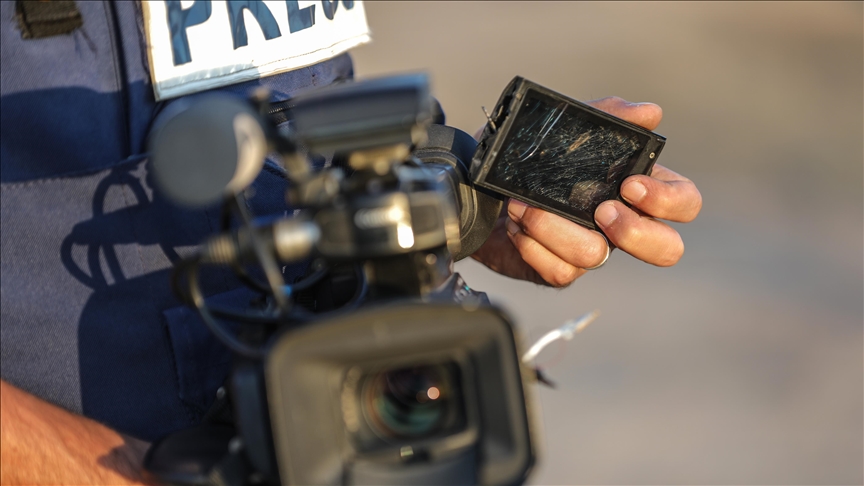Gazan journalist slams western media for ignoring Israel's genocide case
‘I couldn't see any sort of trace or information that this was even happening,’ Muhammad Shehada tells Anadolu about coverage of UN court case

ISTANBUL
Gazan journalist and activist Muhammad Shehada, residing in Sweden, accused the mainstream Western media of neglecting South Africa's genocide case against Israel at the International Court of Justice (ICJ) in The Hague.
Shehada evaluated for Anadolu the publication policy of Western media regarding the case at the top UN court.
He highlighted the careful language employed by mainstream media when reporting any Israel-related matter. “You can also see mainstream media being sort of very cautious about anything that has to do with Israel because of fear of backlash, or sort of attacks on individual journalists if they veer into their territory,” he said.
Expressing disappointment at the limited coverage in Western media, Shehada stated: “I started the day by systematically looking at every mainstream TV channel in the US and then the BBC channel for the UK, and then trying randomly to see mainstream media channels across Europe.”
“And I couldn't see any sort of trace or information that this was even happening, let alone covering it up with the live broadcast, which is something that I've only seen in so far in like Al Jazeera, TRT and South African TV and Arab media channels,” he said.
Shehada criticized international media, describing it as a consistent feature since the start of the Israeli war on the enclave.
He noted an unprecedented, concerted campaign of disinformation through omission and selectivity, emphasizing specific incidents while neglecting others.
For instance, Shehada pointed out the absence of videos depicting Israeli soldiers committing war crimes, such as destroying homes, looting, killing and pillaging, on mainstream media outlets like CNN and BBC.
He labeled the selective reporting as "disinformation by omission."
Discussing the potential impact of the ICJ case, he noted that a favorable ruling could aid the return of Palestinians displaced during the Nakba, or Catastrophe, in 1948.
He emphasized the trial's significance to Palestinians, stating, that every single Palestinian he knows, whether in Gaza or around the world, was glued to their television screens Thursday, the first day of the case. “Because they see that as a trial of the last 75 years of ongoing Nakba, and apartheid,” he said.
“If there is a favorable ruling, it would in the long term strengthen the Palestinian position significantly. In the short term, it may have a strong potential to push the situation in Gaza closer to an end, where Israel would withdraw or at least lower the intensity of the fighting and allow people to move back to their homes in the north and allow electricity, food, water, fuel, etc.”
The first day of the trial concluded Thursday after the South African Ambassador to Amsterdam, Vusimuzi Madonsela, read the nine interim measures his country requested from the Court against Israel.
On the first day, the South African side presented allegations against Israel to the ICJ along with the supporting reasons and evidence.
Legal representatives for South Africa in the trial accused Israel of "deliberate actions against Gazans, proving genocidal intent."








